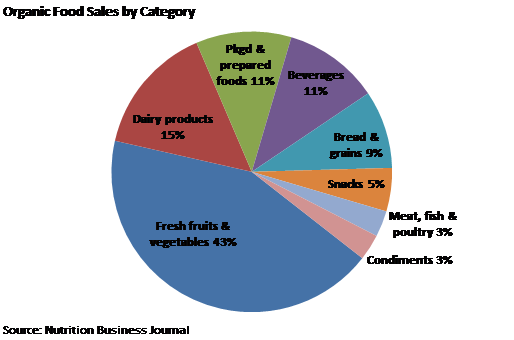Introduction
In today’s fast-paced world, where health concerns and environmental awareness are at the forefront of our minds, the demand for organic vegetables has seen a remarkable surge. The term “organic vegetables” has become a buzzword in the culinary and health spheres, signifying a shift towards sustainable farming practices and a focus on nutrient-rich produce. In this comprehensive blog post, we will explore the myriad benefits of organic vegetables, both for our well-being and for the planet. So, grab a cup of tea and let’s dive into the world of organically grown goodness!
Understanding Organic Vegetables
Before delving into the numerous advantages of consuming organic vegetables, let’s first understand what makes them distinct. Organic vegetables are cultivated using farming methods that prioritize environmental sustainability, biodiversity, and natural processes. These methods exclude the use of synthetic pesticides, herbicides, genetically modified organisms (GMOs), and chemical fertilizers. Instead, they rely on composting, crop rotation, and other natural techniques to nourish the soil and promote plant growth.
The Health Benefits of Organic Vegetables
One of the key reasons behind the popularity of organic vegetables is their potential to enhance our health. These nutrient-packed powerhouses offer a range of benefits that can significantly contribute to our overall well-being.
Higher Nutrient Content: Research suggests that organic vegetables tend to contain higher levels of vitamins, minerals, and antioxidants compared to conventionally grown counterparts. This could be attributed to the fact that organic farming practices promote soil health, allowing plants to absorb nutrients more effectively.
Reduced Exposure to Pesticides: The absence of synthetic pesticides in organic farming means that consumers are less likely to ingest harmful chemicals. This is particularly important as some pesticides have been linked to various health issues, including hormonal disruption and certain types of cancers.
Rich in Flavor: Many advocates of organic vegetables attest to their superior taste and texture. The nurturing of soil health through organic practices often results in produce that is bursting with flavor, making each bite a delightful experience.
Allergen Reduction: Organic farming practices that avoid GMOs may contribute to reducing the risk of allergens entering the food supply chain. For individuals with food allergies, this can be a crucial factor.
Environmental Benefits of Organic Vegetables
Beyond personal health, the consumption of organic vegetables also has significant positive implications for the environment. The sustainable approach employed in organic farming yields several ecological advantages.
Soil Health and Biodiversity: Organic farming practices prioritize soil health by avoiding synthetic chemicals that can degrade the soil’s structure and fertility over time. As a result, these practices promote biodiversity, encouraging the growth of beneficial microorganisms and insects.
Water Conservation: Organic farming tends to use less water compared to conventional agriculture. By minimizing water wastage and focusing on efficient irrigation methods, organic farmers contribute to water conservation efforts.
Reduced Carbon Footprint: Organic farming practices emphasize carbon sequestration in the soil, which helps mitigate climate change. Additionally, the avoidance of synthetic fertilizers and pesticides reduces greenhouse gas emissions associated with their production and application.
Preservation of Ecosystems: The absence of synthetic chemicals in organic farming prevents pollution of nearby water bodies and protects local ecosystems. This is crucial for maintaining a balanced and sustainable environment.
Tips for Incorporating Organic Vegetables into Your Diet
Now that we understand the benefits of organic vegetables, let’s explore some practical ways to include them in our daily meals.
Visit Farmers’ Markets: Farmers’ markets are a great place to find locally grown organic vegetables. Not only will you be supporting local farmers, but you’ll also get to enjoy the freshest produce.
Join a Community Supported Agriculture (CSA) Program: CSA programs allow you to receive a regular supply of fresh organic vegetables directly from local farms. It’s a convenient way to access seasonal produce while fostering a sense of community.
Grow Your Own: If you have the space, consider starting a small organic vegetable garden. It’s a rewarding experience that allows you to connect with your food on a deeper level.
Read Labels: When shopping at supermarkets, look for the organic certification label. This ensures that the vegetables have been grown following strict organic standards.
Cook Creatively: Experiment with different cooking methods and recipes to fully enjoy the flavors of organic vegetables. Try roasting, grilling, or even enjoying them raw in salads.
The Importance of Supporting Local Organic Farmers
When it comes to sourcing organic vegetables, supporting local farmers becomes essential. By purchasing from local organic farms, you’re not only getting the freshest produce but also contributing to your community’s economic growth and the preservation of agricultural diversity.
Fresher Produce: Local organic vegetables are harvested at their peak ripeness, resulting in superior taste and nutritional value. When you buy from local farmers, you’re getting vegetables that have traveled shorter distances and haven’t been subjected to long periods of cold storage or transportation.
Community Connection: Buying from local farmers fosters a sense of community and allows you to establish a direct relationship with the people who grow your food. It’s an opportunity to learn about their farming practices, ask questions, and gain a deeper understanding of the food production process.
Supporting Small-Scale Agriculture: Purchasing from local organic farmers supports small-scale agriculture, which is often more environmentally sustainable and less resource-intensive than large-scale industrial farming. This can help protect rural landscapes and maintain a balanced ecosystem.
Preserving Agricultural Biodiversity: Local farmers often grow heirloom varieties and lesser-known crops that may not be found in supermarkets. By buying from them, you’re helping to preserve agricultural biodiversity and prevent the loss of traditional crops.
Reducing Food Miles: Food miles refer to the distance food travels from the farm to your plate. Buying locally produced organic vegetables reduces the carbon footprint associated with transportation, contributing to lower greenhouse gas emissions.
Organic Vegetables and Culinary Delights
Beyond their health and environmental benefits, organic vegetables can also elevate your culinary experiences. Their exceptional flavors and textures can inspire a wide array of delectable dishes.
Farm-to-Table Delights: When you have access to fresh organic vegetables, the farm-to-table concept comes to life. Incorporate these vegetables into simple salads, soups, and stir-fries to let their natural flavors shine.
Vibrant and Colorful Salads: Organic vegetables come in a rainbow of colors, each indicating a different set of nutrients and antioxidants. Create visually appealing salads by combining various colors, and don’t forget to add organic greens like spinach, kale, and arugula for a nutrient-packed base.
Roasting Magic: Roasting organic vegetables with a drizzle of olive oil, a sprinkle of sea salt, and a dash of herbs can turn them into irresistible caramelized delights. Think roasted Brussels sprouts, carrots, and sweet potatoes.
Creative Veggie Bowls: Experiment with veggie bowls that combine organic vegetables with grains, legumes, and flavorful sauces. These bowls are not only nutritious but also allow you to showcase the beauty of organic produce.
Homemade Organic Juices and Smoothies: Blend a variety of organic vegetables like carrots, beets, kale, and cucumbers into nutrient-packed juices and smoothies. Their vibrant colors and earthy flavors will add a burst of vitality to your drinks.
Incorporating organic vegetables into your culinary adventures not only supports your health but also encourages mindful eating and a greater appreciation for the ingredients you use.
The Future of Organic Agriculture
As the demand for organic vegetables continues to grow, the future of organic agriculture holds exciting possibilities. Advancements in sustainable farming techniques, technology, and research are paving the way for even more efficient and environmentally friendly methods of cultivation.
Regenerative Agriculture: Regenerative agriculture takes sustainability to the next level by focusing on practices that actively restore and improve the health of the soil, increase biodiversity, and enhance ecosystem services. This approach has the potential to revolutionize how we produce food while addressing environmental challenges.
Urban Farming and Vertical Agriculture: Urban farming and vertical agriculture are gaining momentum in urban areas where space is limited. These innovative methods allow for the cultivation of organic vegetables in vertical gardens, rooftops, and indoor spaces, reducing the need for long transportation routes.
Technological Innovations: Technology is playing a significant role in advancing organic farming practices. From precision agriculture to data-driven decision-making, these technologies can optimize resource use and increase yields while maintaining organic standards.
Climate-Resilient Crops: With climate change posing challenges to traditional agriculture, the development of climate-resilient organic crops is on the horizon. Scientists are working to create varieties that can withstand extreme weather conditions while adhering to organic principles.
Conclusion
In a world where both personal health and the health of the planet are of paramount importance, organic vegetables emerge as a symbol of positive change. With their superior nutrient content, reduced exposure to harmful chemicals, and environmentally friendly cultivation methods, these vegetables offer a holistic solution for those seeking to nourish their bodies and contribute to a sustainable future. So, the next time you savor a forkful of organic spinach or relish the sweetness of an organic tomato, remember that you’re not only treating yourself to a delectable meal but also taking a step towards a healthier, greener world.
The journey into the world of organic vegetables is a rewarding one that encompasses health, sustainability, and culinary exploration. From their higher nutrient content and reduced environmental impact to the vibrant flavors they bring to our plates, organic vegetables offer a multitude of benefits that go beyond their delicious taste. By supporting local farmers, experimenting with culinary creations, and staying informed about the future of organic agriculture, we can contribute to a more nourished and sustainable future for ourselves and the planet. So, let’s embrace the organic vegetable movement and savor every bite as a step towards a healthier, greener world.











